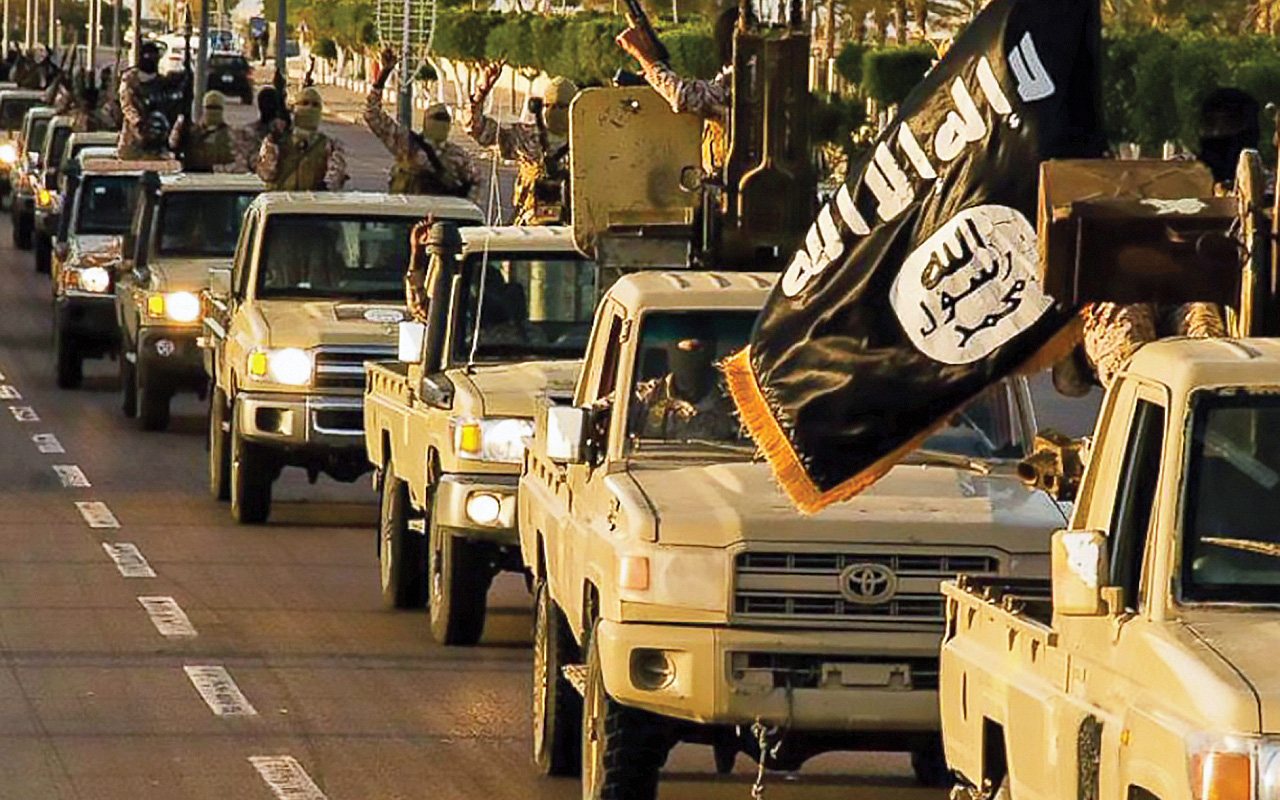PBS: Escaping Eritrea … [Read More...] about ካብ ውሽጢ ቤት ማእሰርታት ኤርትራ
Into the terror zone: how Isis has gained support in Syria, Iraq and Libya
It seemed as if hardly a building in the town had been left untouched by the months of fighting. But Kobane had won, the Kurds were left standing and no one I met complained about the cost of defeating IS. This was a first and notable victory for international bombs and local forces. But Kobane isn’t Raqqa and it almost certainly is not Mosul. In Kobane, the population was near-united in its antipathy towards IS; Raqqa and Mosul are the group’s heartlands in Syria and Iraq.
As Britain makes a decision on whether to bomb IS in Syria, as we are already doing in Iraq, we appear to have little understanding of why IS has become so strong and, indeed, why its support is growing. In our disgust at its medieval methods of torture and killing, it is easy to forget that IS is not merely tolerated but welcomed in its strongholds in Iraq and Syria. It is true that there are many foreign fighters in both cities but there are also Sunni Arab populations that regard IS rule as a better alternative to the Shia-led government of Iraq, Iranian-funded militias, the Kurds or the regime of Syria’s president, Bashar al-Assad.
Islamic State’s leaders are political masters at the local level. They exploit division to thrive. After the Paris attacks, there may be talk of a renewed global political willingness to tackle IS but on the ground, in the places where it has taken hold, there is no sign of an uprising against the group.
Yet there have been moments in recent weeks, as I stood either side of a border that IS says no longer exists, when it looked to me like the militants were being beaten. On a rooftop, I watched a 22-year-old Syrian Kurd, Zinar, punch co-ordinates into a cheap tablet computer and use a “chat app” to direct an American air strike against an IS position. Zinar hit Send and 15 minutes later there was a mushroom cloud on the horizon. With a puckish grin, he confessed that it was all very simple. He was averaging between three and five air strikes a day but was unwilling to talk about the American trainers who had taught him to help direct the bombs.
And a week later I watched lumbering, US-made, mine-resistant vehicles driving through the Iraqi mud as Kurds – this time the peshmerga – reclaimed the devastated and broken town of Sinjar. The Kurds finally appeared to have the weapons and supplies they needed to mount a proper offensive. Islamic State had retreated, leaving behind mass graves of the murdered Yazidi men and women.
In both battles, however, the absence of IS dead was striking. It seemed as though the militants had withdrawn to fight another day. And what they left behind points to their remaining strength. Militarily, they were well prepared for what was thrown at them in Sinjar. Once again, as in Kobane, Tell Abyad and other towns freed from IS control, the militants had dug in. A network of tunnels and hideaways dug deep in the earth had allowed their commanders to hide safely and their fighters to move freely.
In Raqqa and Mosul, they are more deeply embedded and have greater support. The resistance will be fierce when eventually local ground forces confront them. And where to bomb? Even fighters I have met from the Free Syrian Army, who had infiltrated Raqqa in the past, said that they had not been inside in months. It was now too difficult and up-to-date intelligence on the city is impossible to come by.
When IS left Sinjar, Yazidi fighters returned and said that they would search for the missing women, feared raped and enslaved by IS. They also set about looting and setting alight the homes of their Sunni Arab neighbours, whom they blame for collaborating with and embracing IS. Islamic State had lost the battle but politically it had won. The hatred among the communities it left behind was stronger than ever.
Long before the suicide attacks in Paris or here in Beirut in November, IS became a truly international group. While the West prevaricated over the best military response on the ground – arm the Kurds? Train outside forces? Send in special forces? – IS expanded far beyond its core, into Libya.
When the IS flag first appeared on the side of the Ouagadougou Conference Centre in the coastal town of Sirte, it appeared that its few hundred fighters were no more than local chancers, pro-Gaddafi loyalists taking up a different banner. In the spring I was standing on a hill overlooking the town centre when mortars started to land around us. The men of Brigade 166 from nearby Misurata, acting on behalf of the Tripoli-based government, were mostly unperturbed, standing with their hands in their pockets. After a while, the mortars landed close enough for them to feel the shock waves and the Misuratans ambled into action. But even then, people wondered, could IS have made it to the Mediterranean? Were these men really fighting on behalf of the group? Now that it has expanded far beyond Sirte’s town centre, with fighting forces in Libya estimated at 5,000, the answer is a clear yes. The Misuratans appear to have given up the fight and it is not clear who, if anyone, is attempting to stop IS in this country. Sirte could be its bolt-hole from Iraq and Syria.
During its year and a half of existence in its current form, Islamic State’s roots have grown deep and spread wide. The grievances in Iraq and Syria that allowed it to flourish have not been addressed and have only intensified – and appear to lie far beyond the reach of air strikes alone.
Quentin Sommerville is Middle East correspondent for the BBC

